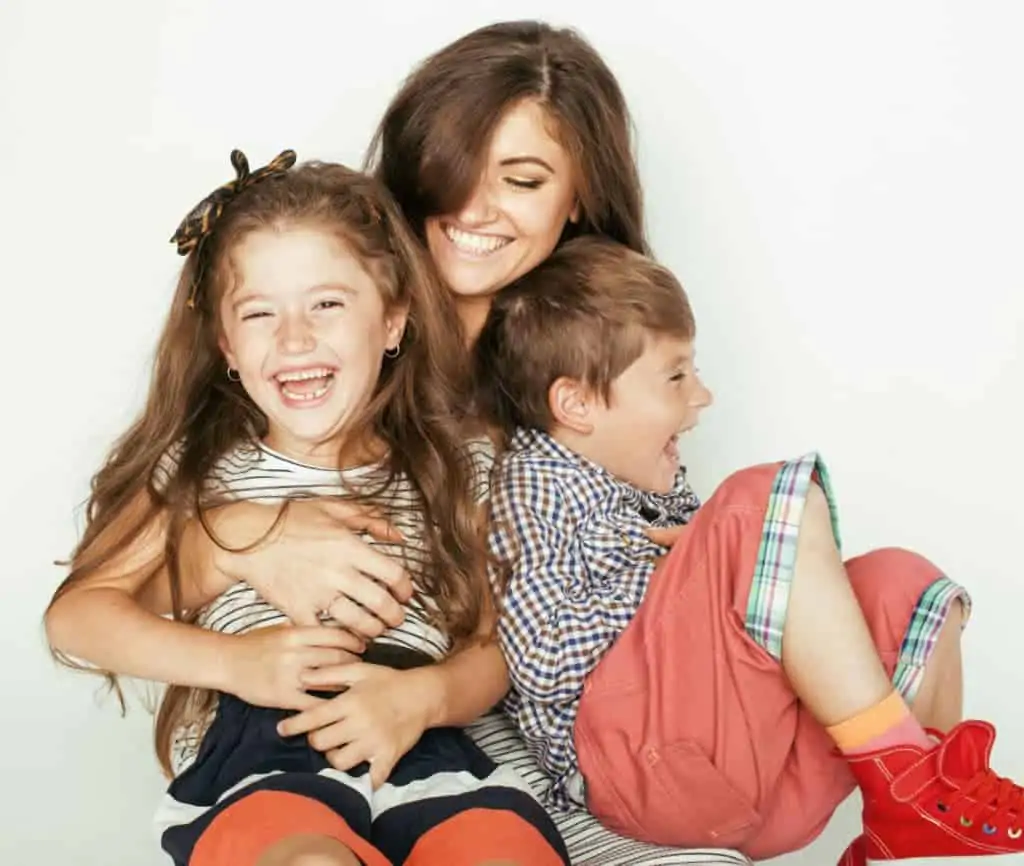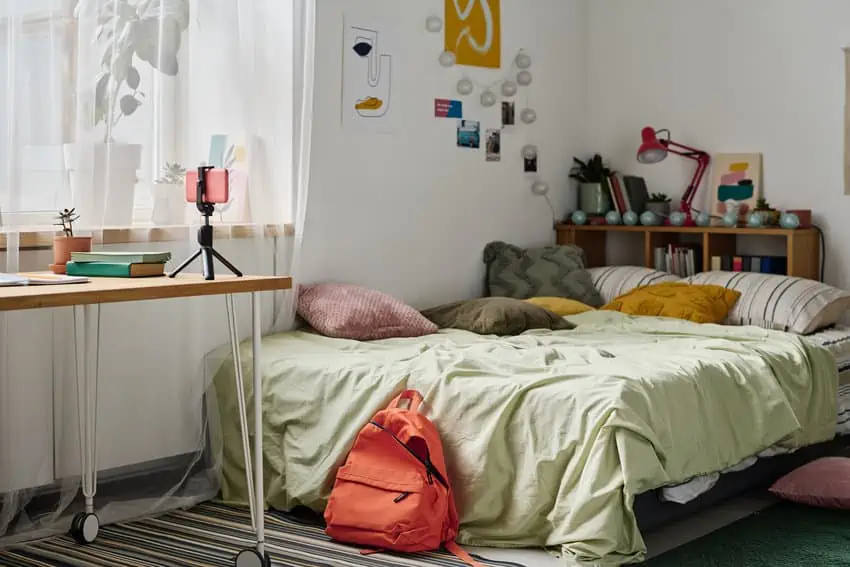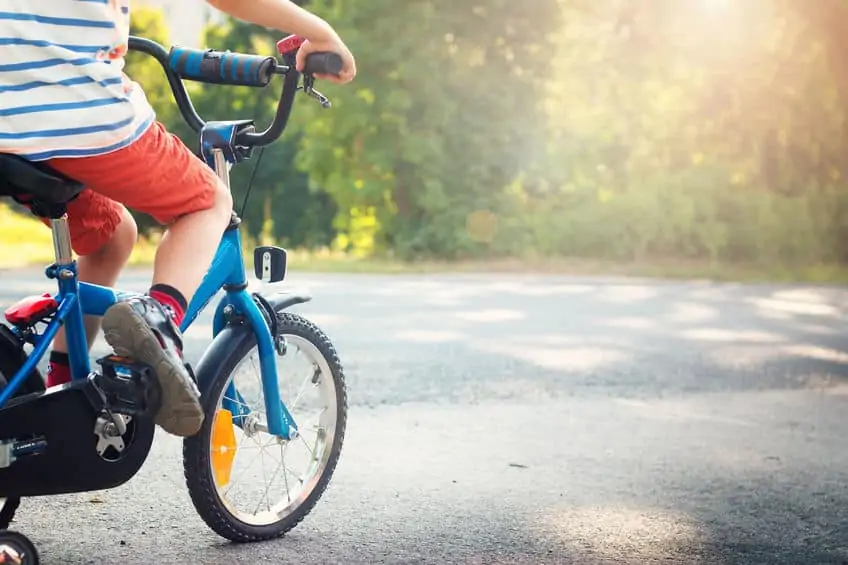Do you know the magic number of times you should say Yes for each time you say No according to child psychology and research? If your kids aren’t listening or are giving you a hard time with tough behavior, learn about why you should say yes to your kids more often and then sit back and enjoy all the magic that follows…
It’s easy to get caught in the cycle of saying ‘No’ and all the iterations of it. Sometimes saying ‘No’ is a way to assert parenting control or to demand instead of request.
It might also be a quick way to halt what could be unsafe or dangerous behavior such as when my son cheers on his two-year-old sister to dangle off the top bunk and I have to hightail into the room to catch her.
The problem with saying ‘no’ often is that it loses its effectiveness and you end up sounding like a scratched record stuck playing the same broken note over – and over – and over again.
Kids learn to cherry pick when to listen and when to tune you out.
Saying no is an easy habit to build but even hard to break, especially with all the negative responses that float around in a day parenting kids. Lingo like this all means the same thing – NO.
- “No hitting your sister.”
- “Stop it!
- “We’re having dinner in a couple minutes, no snacks.’
- “Stop touching that.”
- “No rough housing!”
- “No running in the house.”
- “No!”
- “Don’t jump on the couch.”
- “Stop slamming doors!”
At the end of the day when I finally flop down on the couch, all the times I said No weigh heavy on my mind. It’s not just the act of saying no, it’s the environment I’m creating in my home and my connections with my children I worry are in jeopardy.
Parenting is a tug-of-war to find a gentle balance but saying ‘No’ too often feels like being on the losing side, all the time.
If you are curious or want to skip ahead, here are the bullet-points to the Magic 5:1 Formula
WHY DON’T MY KIDS LISTEN?
When 5 o’clock comes around and I’m making dinner, almost every evening like clockwork, my three kids start playing too rough in the playroom.
Picture a little league WWF match with two six-year-olds and a two-year-old who is confident enough in her she-hulk abilities to dive right into the mix.
I call out from around the corner, “stop playing so rough” or “no launching off the couch” which basically doesn’t do a darn thing.
After a few thumps from someone somersaulting off the couch, inevitable it’ll be followed by wailing as the littlest gets hurt and I pop from around the corner like a Jack-in-the-Box and snap “Stop It! or “I said not to play rough!” in a voice much too loud and much too harsh.
For a while I couldn’t figure out how to get my kids to listen to me – whether it was a request or to turn behavior around.
The answer became crystal clear when my sister schooled me on my parenting technique.
My sister, who is conveniently a Child Psychologist, pointed out the obvious fact when she asked me, “Well, how often do you say Yes compared to the amount of times you say No?”
My mouth probably opened and shut a couple times but I sat silent before I could sheepishly respond. She was smirking back at me when she told about out the magic parenting number to get your kids listening, have consistently better behavior and most importantly, to stay connected with them.
“For each ‘No’ you say, research says you need to say ‘Yes,’ five times.”
The magic happens when you use the 5:1 ratio of parenting: Five Yeses to every One No
This was the secret sauce to what my home was missing.
SAYING ‘YES’ SHIFTS BEHAVIOR IN THE RIGHT DIRECTION
It was clear something in our house needed to change and that change had to come from me. 99% of the time if you want your children’s behavior to change, this has to start with the parents and the overall home environment.
- I began holding my tongue and when I wanted to say no to my daughter’s outfit choice of wearing a swimsuit over her clothes to school, I said yes. (And then took a lot of pictures.)
- When my son wanted to create a farm of rollie pollies, I let him. When I said yes, because he had anticipated I’d say no, he let out a loud whoop and skipped across the yard to begin his hunt for his “pets.”
- When my two-year-old turned on the hose in the middle of the yard to make a mud pit while I ran inside to use the bathroom, I didn’t scold her. I let her roll around in it like a little piggie.
It took some patience and learning how to pause before I respond with a resounding ‘No,’ but a miraculous change began to happen in our house when I said ‘Yes‘ more.
The tantrums and outbursts began subsiding. The back talk and eye rolls were cut in half. My children didn’t choose to ignore my requests from the kitchen about rough housing while I made dinner any longer. They stopped rough housing and they started listening.
For every ‘No’ I said or request I asked, those were received with more understanding because our home had reached a greater balance of positivity and respect for one another.
Now when I say ‘No’ or ‘Stop,’ I do it because I’m concerned for their safety or need their immediate attention, not because sometimes it’s easier to say ‘No’ than find another solution.
TURNING A ‘NO’ INTO A ‘YES’ OPPORTUNITY: REAL-LIFE EXAMPLES
Saying yes doesn’t mean granting big, extravagant, expensive requests. When you’re at Target and they ask for a toy off the shelf, I’m not talking about saying ‘Yes‘ to this sort of stuff.
Simple everyday ways of changing your own mindset and shifting the situation to a middle ground will make everyone happier and here are a few examples of how to reword your response.
EXAMPLE
- Child: I’m not ready for bed, I still want to read.
- Parent No Answer: No, It’s time for bed. (And bedtime battle ensues)
- Parent Yes Answer: We can read for five more minutes and then it’s time to go to bed.
EXAMPLE
- Child: I’m hungry, can I have a snack?
- Parent No Answer: No, we’re having dinner in a couple of minutes.
- Parent Yes Answer: We’re having dinner in a couple of minutes, but you could have two apple slices or two carrots, what would you like?
EXAMPLE
- Child: Can I go play outside?
- Parent No Answer: No, you still have to do your homework.
- Parent Yes Answer: Let’s sit down and finish your homework and then you can run outside to play.
EXAMPLE
- Parent No Answer: Stop running in the house!
- Parent Yes Answer: Let’s find something to do to get our energy out instead of running in the house. What about playing outside or jumping on the trampoline?
EXAMPLE
- Parent No Answer: Don’t hit your sister!
- Parent Yes Answer: I don’t like that you hit your sister. Maybe we need some time apart to do something you like doing without her for a while
When your kids understand that you’re telling them ‘No’ is for an important reason, they’ll perk up and listen. Instead of cherry picking what they think is important to listen and when it’s OK to tune you out, they learn when you say ‘No,’ it’s important to follow directions.
The magic happens when you use the 5:1 ratio of parenting: Five Yeses to every One No
More Positive Parenting Resources:
- How to Create a Positive Home (And Why this Will Affect Your Kids Forever)
- Want to Raise Confident Kids? Do This!
- Teach Your Children How to Choose the *Right* Friends
- Overwhelming Situations When Kids Need Their Parents to Intervene
- 25 Fun Ways to be a More Playful Parent with Your Children
Want even more?
Shop All Parenting Resources
Shop all of our parenting resources from self-regulation tools and managing big emotions to building self esteem and confidence. There are resources for all seasons of life!









Omgosh! I’m trying this tomorrow. Any tips on a 6 year old who’s been compared to the energizer bunny? Great kid. Sweet kid. Very smart. Just doesn’t listen.
Pull out the batteries and switch to dollar store ones lol. I have the same wild 5/6 year old never quits
I love this idea! Thank you! God bless!
I so needed this! And the examples used will definitely help out. Great article!
This is indeed a great way of approaching the kids. It also made me as a mum much calmer and tolerant. It changed my way of looking at things, not everything has to be so negative as we make it out to be sometimes. Kids also sometimes want to do things, although they know you will say no or that it is not allowed, just to get some attention. When responding with a yes, it makes you as a mum think more and be more creative in your answering. This shows some attention to the child as well and there will be more interaction, even when being busy at the time.
Once you get the hang of this, it becomes more routine based. My husband still asks me: “why did you say yes?”. And then I explain to him too 😀 Makes life much easier on all of us and you really get to choose your battles..
yeah this is all so common
Try having 2 full time working parents and 3 kids .
See how many days you last saying yes.
Ridiculous in my opinion.
This works until a child is 3.
I have. We have two full time working parents and three kids in our family and see how impactful this. My kids are 11, 11 and 7 and it’s become even more important as they get older. Wishing you all the best
I have four children 12, 10, 8 and 6, boy and three girls. One has behavioural issues but the others don’t. I don’t think it will work on the girl who has issues but I’ll try on the others.
Thanks for creating this page